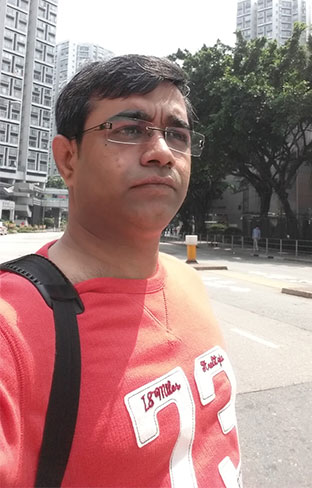Jakarta Street Violence – Are Islamists on the rise in Indonesia?
- In Foreign Policy
- 01:39 PM, Nov 11, 2016
- Sagar Kinhekar
The Streets of Jakarta saw violence on the last Friday night following a protest rally against the governor of the city. The violence followed by a rally of around 150,000 people protesting against the governor’s alleged insult of Koran claimed one life, and left several injured. The protest, started in afternoon, was largely peaceful until evening, when a group of students belonging to Islamic Student Association clashed with the police.
Earlier a threat from Islamists, both foreign and domestic, had prompted President Joko Widodo to instruct Indonesia’s military to be ready ahead of the second largest demonstration this month against governor Basuki Tjahaja Purnama.
Regularly criticized for being a Christian governor in a majority-Muslim city, Purnama, who is also known as Ahok, recently called out his opponents for interpreting a verse in the Koran to mean that Muslims shouldn’t cooperate with Christians and Jews. Ahok stated that his rivals were “lying,” which resulted in Islamic hardliners exploding in protest, and the president telling the military on Monday to be “on alert”. Purnama is popular with middle class for his strict adherence to rules and anti-corruption drives.
Sometime back, while discussing about Indonesia one of my colleagues, an Indonesian of Chinese descent, explained how Islamism is increasing in Java (largest island of Indonesia). He explained how persecution of minorities, especially Chinese Christians is very common in rural areas. However, one takes these stories with pinch of salt, given the generally peaceful nature of Indonesian population. Having been to Jakarta multiple times, I never felt any sign of extremism there. Although there have been cases of terrorist attacks, the common Muslim population seems to be largely peaceful and accommodative. I have heard stories of how every religion has freedom to follow its own path in Indonesia. Stories of Ramayana and Mahabharata are still enacted in folk art even in Muslim majority regions.
But is the situation changing in Indonesia now? In fact, when one researches it becomes apparent that the change had started long back and is just more visible now than earlier. After Suharto’s fall in 1998, fundamentalists have been steadily gaining power. This has been demonstrated from time to time. For example, in 2005 the Ahmadi sect was declared as an errant community by a fatwa. On February 6, 2011, an angry mob attacked the premises of the Ahmadi congregation in Cikeusik, Pandeglang — Banten, West Java. Three Ahmadi followers were killed and five injured. Similarly, there have been instances of attacks on religious places and congregations of different religions. Early this year, there were reports of some 22 Islamic groups pledging allegiance to ISIS leader Abu Bakr Al Baghdadi. These groups have not yet faced any legal action from government. All this shows that the recent instance of violence was not isolated one.
A large part of blame of this increased extremism should be taken by soft handling of religious extremists by successive governments after Suharto. Extremist groups have existed in the country since its independence from the Netherlands in 1949. Under Suharto, the dictator who ran the country for 32 years, militant Islamic groups like Darul Islam (DI), which declared an Islamic state in West Java, were brutally quashed. When Suharto was overthrown in 1998, Indonesian extremists who had been gaining battlefront experience with al-Qaeda in Afghanistan returned to the country and formed various militant groups, chief among them was Jemaah Islamiyah (JI), which staged attacks on targets perceived as un-Islamic, such as Christian places of worship and nightclubs. The group, led by Abu Bakar Bashir and with a presence in several Southeast Asian countries, seeks to establish a Pan-Islamic state across much of the region.
Although in 2002 the government created “Detachment 88”, a US trained anti-terrorism unit. This unit hunted down most of the Al Qaida affiliated terrorist groups. However now ISIS affiliated groups have taken its place. This may well be a result of government’s unwillingness to address increasing religious fundamentalism in general population. The trend in Indonesia is worrying not just for the country but also for entire south-east Asia, as any ISIS like rising in Indonesia will affect other Muslim majority nations like Malaysia and could change the entire region unrecognizably forever.
Image Credit: Reuters







Comments